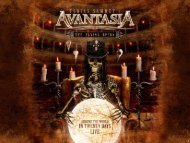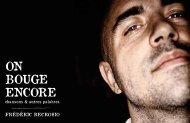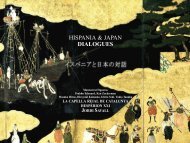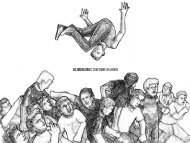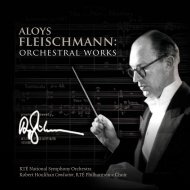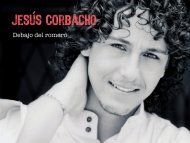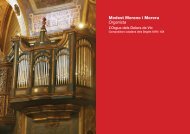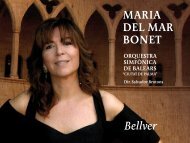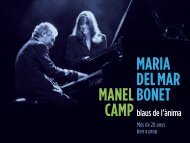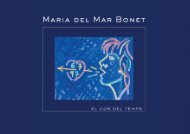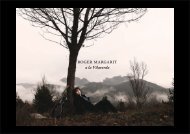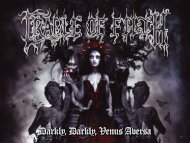“El poder espiritual de la música antigua” “Spiritual power of Early ...
“El poder espiritual de la música antigua” “Spiritual power of Early ...
“El poder espiritual de la música antigua” “Spiritual power of Early ...
You also want an ePaper? Increase the reach of your titles
YUMPU automatically turns print PDFs into web optimized ePapers that Google loves.
LA INTERPRETACIÓN DE EDUARDO PANIAGUA<br />
La interpretación contemporánea <strong>de</strong> <strong>la</strong> <strong>música</strong> medieval<br />
obliga al músico a una reflexión epistemológica superior<br />
a <strong>la</strong> necesaria para otras épocas musicales. La musicología<br />
no es unitaria y <strong>la</strong>s opciones inevitablemente van unidas<br />
a <strong>la</strong> experimentación. El género literario musical, los<br />
códigos paleográficos <strong>de</strong> <strong>la</strong> notación <strong>de</strong> los manuscritos<br />
y <strong>la</strong> tímbrica aventurada sobre <strong>la</strong>s investigaciones<br />
organológicas, obligan a que <strong>la</strong> personalidad <strong>de</strong> los<br />
músicos prácticos, mas que otros elementos, marquen <strong>la</strong><br />
diferencia conceptual y sonora <strong>de</strong> <strong>la</strong> <strong>of</strong>erta musical <strong>de</strong> <strong>la</strong><br />
Edad Media.<br />
Eduardo Paniagua, nacido en Madrid en 1952, es<br />
arquitecto y especialista <strong>de</strong> <strong>la</strong> <strong>música</strong> <strong>de</strong> <strong>la</strong> España<br />
medieval. A los 16 años graba sus primeros cuatro discos<br />
con el grupo Atrium Musicae. Miembro fundador <strong>de</strong> los<br />
grupos Cá<strong>la</strong>mus y Hoquetus, se especializa en <strong>la</strong> <strong>música</strong><br />
arábigo-andaluza. En 1994 crea los grupos MÚSICA<br />
ANTIGUA e IBN BÁYA, este último codirigido<br />
con el <strong>la</strong>udista Omar Metioui, para el trabajo musical<br />
sobre <strong>la</strong>s Cantigas <strong>de</strong> Alfonso X y <strong>la</strong> <strong>música</strong> andalusí<br />
respectivamente.<br />
En paralelo funda y dirige el sello discográfico PNEUMA<br />
con el que comienza a editar sus más <strong>de</strong> 100 producciones<br />
musicales,. Por su trabajo musical a favor <strong>de</strong> <strong>la</strong> convivencia<br />
<strong>de</strong> culturas ha recibido en Octubre <strong>de</strong> 2004 <strong>la</strong> Medal<strong>la</strong><br />
<strong>de</strong> <strong>la</strong>s cuatro Sinagogas Sefardíes <strong>de</strong> Jerusalem, y por<br />
<strong>la</strong> difusión <strong>de</strong> estas <strong>música</strong>s inéditas está recibiendo<br />
excelentes críticas y premios internacionales, siendo<br />
nominado como Mejor Artista <strong>de</strong> Música Clásica en los<br />
Premios <strong>de</strong> <strong>la</strong> Aca<strong>de</strong>mia <strong>de</strong> <strong>la</strong> Música en los años 1997,<br />
2000 y 2004.<br />
18<br />
THE INTERPRETATION OF EDUARDO<br />
PANIAGUA<br />
Contemporary interpretation <strong>of</strong> Medieval music <strong>de</strong>mands <strong>of</strong> the<br />
musician an epistemological reflection greater than that necessary<br />
when interpreting music from other periods. Musicology is not<br />
a unitary science, and alternatives are necessarily associated to<br />
experimentation. The musical literary genre, the paleographic co<strong>de</strong>s<br />
<strong>of</strong> the notation <strong>of</strong> the manuscripts, and the variations <strong>of</strong> timbre<br />
ventured on the basis <strong>of</strong> organological research exp<strong>la</strong>in why it is<br />
the personality <strong>of</strong> the musicians themselves, more than any other<br />
element, that makes the difference, in conceptual and sonorous<br />
terms, in Medieval music.<br />
Eduardo Paniagua, born in Madrid in 1952, is an architect as<br />
well as a specialist in the music <strong>of</strong> Medieval Spain. By the age<br />
<strong>of</strong> 16 he had ma<strong>de</strong> his first four recordings with Atrium Musicae.<br />
As a foun<strong>de</strong>r member <strong>of</strong> the groups Ca<strong>la</strong>mus and Hoquetus, he<br />
specialised in Arab-Andalusian music, participating in festivals<br />
in both Spain and the Arab world. In 1994 he created the<br />
groups MUSICA ANTIGUA and IBN BAYA to work on<br />
the Cantigas <strong>of</strong> Alfonso X, Andalusi music (music from Moorish<br />
Spain) and other music from the Middle Ages and Renaissance.<br />
At the same time he foun<strong>de</strong>d and directed the record <strong>la</strong>bel<br />
PNEUMA which now boasts more than 100 musical<br />
productions.<br />
As well as international awards Eduardo has received excellent<br />
reviews from the critics for his work and publication <strong>of</strong> this<br />
previously un-released music. He is consi<strong>de</strong>red “a cultural<br />
ambassador” by his country for his contribution to the dialogue<br />
between Mediterranean cultures and was nominated Best<br />
C<strong>la</strong>ssical Music Artist in the Awards <strong>of</strong> the Aca<strong>de</strong>my <strong>of</strong> Spanish<br />
music in 1997, 2000 and 2004.



